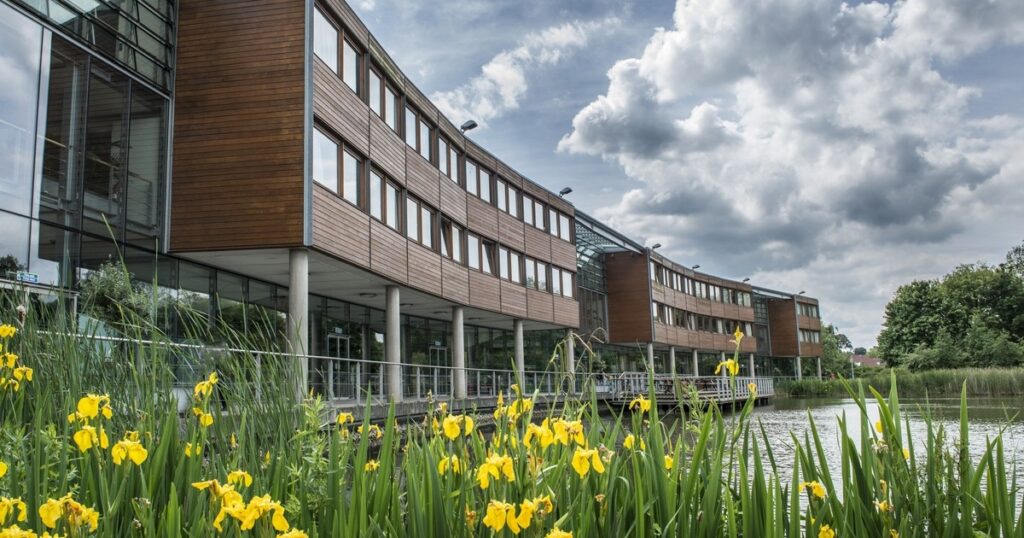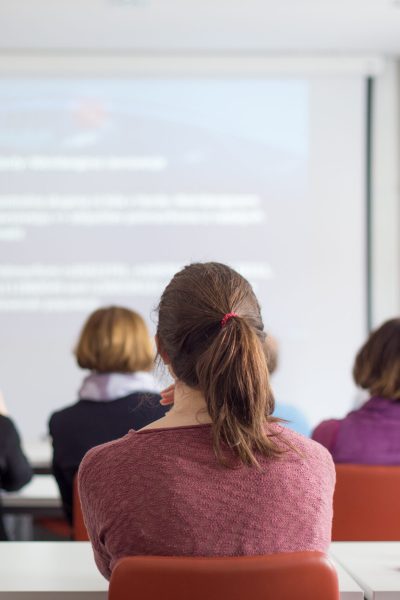Subtotal $0.00
This two-year, part-time Diploma in Relational Counselling is designed to equip students with the comprehensive theoretical understanding, practical skills, and personal development necessary to practice as an ethical, competent, and reflective relational counsellor. The programme places the therapeutic relationship at its core, drawing significantly from relational theories and evidence based practice while integrating relevant aspects of other humanistic, psychodynamic, and systemic approaches.
Graduates will be prepared for independent practice or employment within an agency setting and will meet the training requirements for individual registration with the British Association for Counselling and Psychotherapy (BACP) or the National Counselling and Psychotherapy Society (NCPS).


Relational Focus: Emphasises the “self-with-other” dynamic, intersubjectivity, and the therapeutic relationship as the primary vehicle for change.
Experiential Learning: Integrates practical skills training, personal reflection, and group process work to foster deep learning and self-awareness.
Rigorous Academic Content: Covers core counselling theories, ethical frameworks, professional issues, and research awareness.
Supervised Clinical Practice: Mandates a significant number of supervised client hours (minimum 150 hours) to ensure practical competence.
Personal Therapy Requirement: Students are required to be in personal therapy throughout the course, enhancing self-awareness and understanding of the client experience.
Accreditation Pathway: This programme is designed to meet the standards for BACP Approved Qualification or NCPS Accredited Course status, enabling graduates to apply for individual registration and undertake the BACP certificate of proficiency.

 A Level 2 and Level 3 Certificate in Counselling Skills (minimum 90-95 hours of face-to-face tuition).
A Level 2 and Level 3 Certificate in Counselling Skills (minimum 90-95 hours of face-to-face tuition). Demonstrable maturity, emotional resilience, and capacity for self-reflection.
Demonstrable maturity, emotional resilience, and capacity for self-reflection. Experience in a helping capacity (voluntary or paid).
Experience in a helping capacity (voluntary or paid). Sufficient academic capability to study at diploma level (e.g., GCSE English grade C/4 or equivalent).
Sufficient academic capability to study at diploma level (e.g., GCSE English grade C/4 or equivalent). Successful interview, which may include an interpersonal skills assessment.
Successful interview, which may include an interpersonal skills assessment. A satisfactory enhanced Disclosure and Barring Service (DBS) check will be required for placement.
A satisfactory enhanced Disclosure and Barring Service (DBS) check will be required for placement.Essays and written assignments (demonstrating theoretical understanding and critical thinking).
Live skills assessments/role-play scenarios with peer and tutor feedback.
Individual and group presentations.
Portfolios of evidence, including logs of client hours and supervision.
Case studies (written and/or presented).
Personal learning journals/reflective diaries.
Professional requirements, including a “Fitness to Practice” assessment.
Satisfactory attendance (90% minimum).
Satisfactory engagement in personal therapy and supervision.
Course Duration: 2 academic years (part-time).
Contact Hours: 500 guided learning hours over 36 weeks per year (e.g., one day/evening per week plus occasional weekend workshops).
Additional independent study, personal therapy, and placement hours are required.
Module Structure: Two-Year Diploma in Relational Counselling.
This proposed module structure aligns with the BACP/NCPS core curriculum requirements while maintaining a distinct relational counselling focus.

To establish a solid grounding in the core principles of relational counselling, develop fundamental counselling skills, develop self-awareness, and introduce professional and ethical frameworks within a relational context.
Core conditions (empathy, congruence, unconditional positive regard) from a relational perspective, active listening, foundational communication skills, and the concept of the therapeutic alliance.
Defining relational counselling: principles, philosophy, and historical context.
The importance of the “here-and-now” in the therapeutic relationship.
Introduction to therapeutic presence and attunement.
Basic counselling skills practice (e.g., active listening, paraphrasing, reflecting feelings, emotional focusing, open questions, summarising).
Introduction to ethical principles (BACP/NCPS Ethical Framework) and professional boundaries.
Skills practice observation, hypothetical case study, reflective journal entries.
Exploring how early life experiences and attachment styles shape an individual’s sense of self and their relational patterns in adulthood.
Key theories of human development (e.g., Erikson, Piaget, Vgotsky, Mahler) from a relational lens.
Attachment theory (Bowlby, Ainsworth) and its application to adult relationships.
Understanding the impact of early relational experiences on current presentations.
Introduction to Schemas and Core Beliefs.
Exploration of working with relational ruptures and repair.
The concept of the “internal working model” and its influence on perception.
Essay exploring attachment theory and its relevance to client work.
Deepening the trainee’s self-awareness, understanding their own relational patterns, and how personal history impacts their role as a counsellor.
The use of self in the therapeutic relationship.
Exploring personal values, beliefs, and biases.
Understanding countertransference as a relational phenomenon.
The importance of personal therapy for counsellor development.
Group process work and dynamics within the training cohort.
Mindfulness and present-moment awareness in relation to self and other.
Personal learning journal/reflective portfolio.
Comprehensive understanding of ethical dilemmas, professional standards, and legal responsibilities in counselling, particularly within a relational context.
In-depth study of the BACP/NCPS Ethical Framework.
Confidentiality, safeguarding, and data protection (GDPR).
Contracting and establishing clear therapeutic agreements.
Managing risk, including working with suicidal ideation and self-harm.
The role and purpose of clinical supervision.
Beginning to prepare for counselling placement.
Case studies and exploration of ethical dilemmas in counselling.
Written assignment on an ethical dilemma, participation in ethical discussions.

To deepen theoretical understanding of relational approaches, refine advanced counselling skills, integrate theory with practice, and prepare students for competent and ethical work on their supervised placements.
Exploring complex relational concepts and their application to therapeutic intervention.
Intersubjectivity: The co-created nature of the therapeutic space.
Working with transference and countertransference from a relational perspective.
Relational dynamics in different client presentations (e.g., anxiety, depression, personality disorder, psychological trauma).
Introduction to psychodynamic object relations and systemic thinking.
Exploring the concept of “field theory” and its application to the therapeutic encounter.
Working with resistance and challenge in a relational way.
Case study analysis from a relational theoretical perspective.
Developing a critical awareness of social, cultural, and power dynamics and their impact on individuals and relationships within the counselling context.
Working with diversity: race, ethnicity, culture, gender, sexuality (GSRD), disability, age, socio-economic status.
Understanding intersectionality and its relevance to relational work.
Exploring power dynamics within the therapeutic relationship and broader society.
Developing anti-discriminatory and anti-oppressive practice.
Addressing issues of privilege and marginalisation.
Introduction to the Social Graces.
Reflective essay on diversity and anti-oppressive practice in relational counselling.
Consolidating and refining advanced counselling skills, applying theoretical knowledge to complex client issues, and integrating different relational techniques.
Advanced skills practice: working with emotional intensity, implicit communication, unfinished business (Gestalt-informed), and body awareness.
Working with relational patterns outside the therapy room.
Developing therapeutic interventions grounded in relational principles.
Integration of different relational theories and techniques into a coherent personal model of practice.
Endings in therapy from a relational perspective.
Live skills assessment, demonstration of integrated practice.
Understanding the role of research in informing counselling practice and developing a commitment to ongoing professional development.
Introduction to counselling research methodologies and ethical considerations in research.
Critical appraisal of research findings relevant to relational counselling.
Evidence-based practice and practice-based evidence.
Planning for post-qualification practice: continuing professional development (CPD), supervision, and accreditation pathways.
Building a professional identity as a relational counsellor.
Research proposal outline or critical review of a relevant research paper.
Clinical Placement (Minimum 150 Supervised Hours): Students will secure and work in an approved counselling agency or setting, accruing client hours under clinical supervision. Placement hours are integral to the course and assessed for competence.
Clinical Supervision (Minimum 1 hour to 8 client hours, typically fortnightly): Regular individual or group supervision with an approved supervisor is mandatory to support clinical practice, ensure ethical standards, and facilitate learning.
Personal Therapy (Minimum 80 hours over the two years): Students are required to be in weekly individual personal therapy with a BACP/UKCP registered therapist. This is considered essential for personal development and understanding the client experience.
Peer Study Groups: Encouraged for mutual support, skills practice, and collaborative learning.

We understand that investing in your professional development is a significant decision. Our two-year Diploma in Relational Counselling offers exceptional value, preparing you for a rewarding career as a qualified counsellor.
This fee covers all tuition, academic resources, and access to our dedicated learning environment for one academic year. Please note that personal therapy, clinical supervision, and professional body membership fees are separate costs, essential for your development and registration.
To make your investment more manageable, we offer the following payment options:
(due upon acceptance of your place)
12 Monthly Instalments: £250 per month (starting from the first month of the academic year).
Calculation: (£3600 annual fee – £600 deposit) / 12 months = £250 per month.
This option allows you to spread the cost conveniently over the academic year, helping to ease your financial planning.